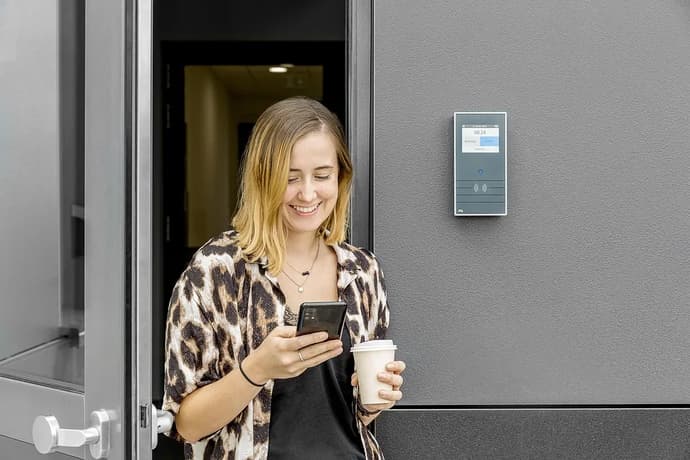
The Psychology Behind Social Casino Games: Why We Love Them

Social casino games aren't just popular because they look fun. There's a lot going on behind the scenes—in our brains, in our habits, and even in how we connect with others. These games mimic real casino gameplay but without cash rewards. What makes them so appealing? Turns out, it goes deeper than flashy graphics and sound effects.
The Brain Loves Rewards
One of the first things that hook people in social casino games is the feeling of instant gratification. Our brains are wired to chase rewards. When you hit a jackpot or unlock a new feature, even virtually, dopamine kicks in. That chemical is all about pleasure and motivation. It doesn't matter that you're not winning real money. The brain still treats the win as exciting.
What's even more interesting is how the unpredictability of rewards keeps us playing. Just like in a slot machine, the "near win" moments in social casino games can be just enough to push us to spin again. This taps into a concept known as variable reinforcement—a powerful motivator in human behavior. Basically, we keep trying because we might win next time.
More Than Just Games: Social Ties and Identity
Another layer to the appeal? The social aspect. Players often compete with friends, send virtual gifts, or join leaderboards. This sense of community and interaction adds emotional value. We're not just playing for fun; we're building connections.
There's also the element of personal identity. People enjoy customizing avatars, building up profiles, and showing off their progress. That personalization makes the experience feel more meaningful.
Want to see a real example? Take a look at Social Casino Games. Notice how the design, rewards, and player interactions all blend together to keep users engaged without any pressure to spend.
Why We Keep Coming Back
The psychology behind repeat play is no accident. Game designers use specific features to make sessions feel rewarding, quick, and satisfying. But there’s more. Here are a few key reasons why players return:
- Daily bonuses: These are small incentives that encourage logging in regularly. It becomes a habit.
- Progress bars and missions: They create a clear sense of achievement. People love ticking boxes.
- Limited-time events: These increase urgency. You don’t want to miss out, so you check in more often.
All of these tap into natural human behaviors. We like finishing tasks, earning rewards, and feeling part of something ongoing.
The Power of Game Mechanics
Game elements play a huge role in making social casino games feel good. It's not just what the games offer—it's how they offer it. These mechanics work almost like a playbook for engagement:
- Bright visuals and sounds: Quick bursts of color and sound trigger sensory excitement.
- Frequent feedback: Games let you know immediately when you win, level up, or unlock something.
- Streak systems: The longer you play, the more rewards you unlock. Missing a day breaks the chain.
These small touches keep players focused and immersed. It feels effortless, even relaxing. And without the stress of financial risk, people feel free to engage for longer periods.
A Safe Escape With Real Emotions
At their core, social casino games offer emotional rewards. Players get to unwind, enjoy a short burst of excitement, and even feel a little competitive. All of this without any real stakes. It’s entertainment that gives the feeling of success, status, and fun.
In short? They're built to make you feel good. And for many people, that’s enough reason to come back again and again.

Kateryna Prykhodko on luova kirjoittaja ja luotettava EGamersWorldin toimittaja, joka on tunnettu mukaansatempaavasta sisällöstä ja yksityiskohtien huomioimisesta. Hän yhdistää tarinankerronnan selkeään ja harkittuun viestintään, ja hänellä on suuri rooli sekä foorumin toimituksellisessa työssä että kulissien takana tapahtuvassa vuorovaikutuksessa.
 Roblox Anime Guardians Koodit helmikuu 2026__Tutustu kaikkiin toimiviin Roblox Anime Guardians -koodeihin. Lunasta ilmaiset Mystic Coins, Trait Rerolls, Artifacts ja palkinnot.
Roblox Anime Guardians Koodit helmikuu 2026__Tutustu kaikkiin toimiviin Roblox Anime Guardians -koodeihin. Lunasta ilmaiset Mystic Coins, Trait Rerolls, Artifacts ja palkinnot. Yhdistyneen kuningaskunnan ulkopuoliset nettikasinot: Pelit, formaatit ja mitä pelaajat voivat odottaa.Yhdistyneen kuningaskunnan uhkapelijärjestelmän ulkopuolella toimivat online-kasinot herättävät huomiota lisensointimallien, pelisalkkujen ja myynninedistämistoimien erojen vuoksi....
Yhdistyneen kuningaskunnan ulkopuoliset nettikasinot: Pelit, formaatit ja mitä pelaajat voivat odottaa.Yhdistyneen kuningaskunnan uhkapelijärjestelmän ulkopuolella toimivat online-kasinot herättävät huomiota lisensointimallien, pelisalkkujen ja myynninedistämistoimien erojen vuoksi.... Bitcoin kasinot ja Crypto uhkapeli alustat UK pelaajilleKryptopohjaisista uhkapelialustoista on tullut huomattava osa maailmanlaajuisia nettikasinomarkkinoita.
Bitcoin kasinot ja Crypto uhkapeli alustat UK pelaajilleKryptopohjaisista uhkapelialustoista on tullut huomattava osa maailmanlaajuisia nettikasinomarkkinoita. Parhaat kansainväliset nettikasinot Yhdistyneen kuningaskunnan pelaajilleNettikasinoteollisuus on jatkuvasti kasvava ala, joka on tunnustettu teknologiastaan, laajasta pelikirjastostaan ja sen tuottamien tulojen määrästä....
Parhaat kansainväliset nettikasinot Yhdistyneen kuningaskunnan pelaajilleNettikasinoteollisuus on jatkuvasti kasvava ala, joka on tunnustettu teknologiastaan, laajasta pelikirjastostaan ja sen tuottamien tulojen määrästä....


